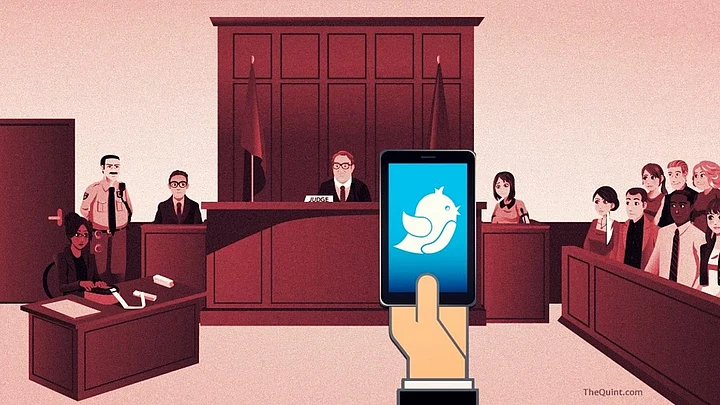On Monday 22 September, the Delhi High Court dismissed AAP member Raghav Chadha's plea in which he prayed that re-tweeting doesn't amount to defamation. Going by the arguments of the HC bench, a defamation suit can be filed against a person if he or she retweets a defamatory tweet.
Raghav Chadha is one of the accused in the Arun Jaitley defamation case along with Delhi CM Arvind Kejriwal.
According to Bar and Bench, Delhi HC said that the plea is devoid of any merit while dismissing it.
Why Are We Debating If Retweets Are Defamatory?
Finance Minister Arun Jaitley had been engaged in a tug-of-war with Delhi Chief Minister Arvind Kejriwal since December 2015. Kejriwal took to Twitter to allege that Jaitley was involved in corrupt practices while he was at the helm of affairs at the Delhi and District Cricket Association (DDCA).
AAP leaders Raghav Chadha, Kumar Vishwas, Ashutosh, Sanjay Singh, and Deepak Bajpai were quick to back Kejriwal’s claim.
Jaitley not only denied these allegations, but also promptly filed both civil and criminal defamation cases against Kejriwal and other AAP leaders for making “false and defamatory” statements and harming his reputation.
AAP’s youth leader and party spokesperson Raghav Chadha, in a plea, alleged that he was made to face a criminal defamation case just for retweeting Kejriwal’s tweets accusing Jaitley.
The Supreme Court therefore had asked the Delhi High Court to decide on the matter.
What Has the Court Been Hearing?
Justice Sangita Dhingra Seghal had reserved her verdict after hearing arguments for over three hours from both Jaitley and Chadha on 20 September. The court also heard whether retweeting a tweet would imply republication of a comment and if such provisions are covered under the Information Technology Act.
Appearing for Jaitley, Siddharth Luthra argued that this particular provision does not come under the purview of the Information Technology Act.
However, senior advocate Anand Grover, representing Chadha, counter-argued that the matter was indeed under the purview of the IT Act as the complaint was based on an electronic record, barring one news article.
Does It or Does It Not?
While Luthra maintained that retweeting amounted to republication, Grover said that a retweet does not do anything extra with respect to circulation as the original tweet is already available to the world.
He further said that retweeting does not amount to endorsing a tweet, to which the court asked, “Then what was the intent of retweeting? Passing time?”
Grover said tweets can be endorsed by ‘liking’ them and added that retweeting only amounted to sharing the tweet and not republication. He said if the original tweet is deleted, then the retweet would automatically go, and added that this aspect was not considered by the magistrate before issuing the summons.
What Does Chadha Really Want?
Chadha had alleged in his plea that he was made to face criminal defamation case only for retweeting Kejriwal’s tweet against Jaitley. He had moved the apex court against the High Court’s 11 July order refusing to stay the lower court proceedings against him in the defamation matter, and had posted his plea for hearing in October.
Chadha had said in the plea that he had raised an important question of law before the high court as to whether the trial court could have summoned him without determining if the alleged defamatory statements, which were purportedly made through Twitter, were covered under the penal provision of defamation under the IPC.
While Chadha might just have wanted to get off the defamation case, the verdict could have a huge implication for social media users and their habits.
(With PTI inputs.)
(At The Quint, we question everything. Play an active role in shaping our journalism by becoming a member today.)
